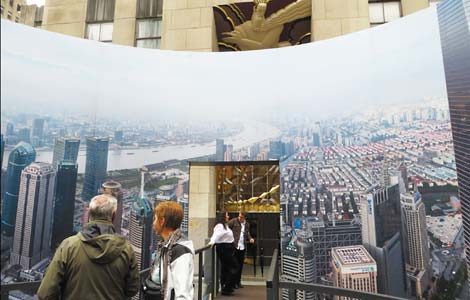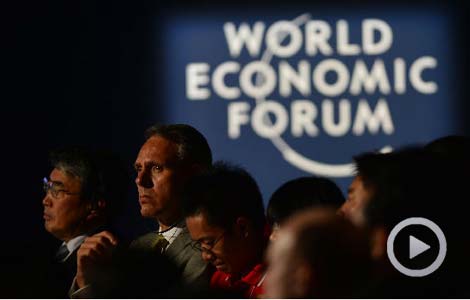High-end tea sales slump in Guangdong
Updated: 2013-09-17 08:17
By Qiu Quanlin in Guangzhou (China Daily)
|
||||||||
Sales of high-end tea in Guangdong province before Mid-Autumn Festival have declined sharply due to government policies to limit luxury spending with public funds.
"High-end tea, along with mooncakes, is usually used as gifts during some big Chinese festivals. But this year, sales of tea have been greatly affected," said Zhang Liming, secretary-general of the Guangdong Tea Procession Association.
An association survey showed that sales of high-end tea dropped nearly 50 percent year-on-year before Mid-Autumn Festival, which falls on Thursday.
The survey targeted about 1,000 tea shops in downtown Fangcun and Haizhu districts, the tea trading hubs in Guangzhou, the capital of Guangdong province.
"The drop was mainly due to the government's policy to limit luxury spending, which has also posed challenges to other retail markets such as high-end liquor," Zhang said.
Zhao Xilai, a trader at Nanfang Tea Market in Fangcun district, also said that business has been tough this year.
"Sales have dropped almost 40 percent since September, which is usually a golden time for the high-end tea market," Zhao said.
Tea sales during Mid-Autumn Festival last year accounted for more than 60 percent of September's total business revenue.
"Many government authorities and companies used to buy high-end tea as gifts. But this year, fewer came to our shop," Zhao said.
Along with the decline of high-end tea sales, sales of some related products, including tea sets and gift cases, have also decreased, Zhao said.
To offset the business downturn, Zhao began to sell some lower-end products, which are usually tailored for individual use.
While sales of high-end tea dropped, sales of lower-end products in most tea markets in Guangzhou remained steady this year.
"We don't sell expensive tea. Our business remained the same as usual," said Chen Wu, a trader at Haizhu Ruinan Tea Market.
Guangdong, one of the country's top provinces in terms of tea consumption, is also home to about 40,000 hectares of tea plantations with steady output growth, said sources with the Guangdong Tea Procession Association.
"People in Guangdong are really keen on drinking tea. So the market for ordinary people is our target, which helps maintain a sustainable growth for us," Chen said.
The big drop in high-end tea sales will not be a big problem for the tea industry as a whole, Chen said.
"Selling high-end tea, which is usually used as gifts, is just part of a short-term strategy for many companies. In the past, sales of such tea underwent a sharp increase during major Chinese festivals," Chen said.
"But from a long-term perspective, the tea industry will not be affected since there are a growing number of individuals who are willing to spend on tea," Chen said.
qiuquanlin@chinadaily.com.cn
(China Daily USA 09/17/2013 page3)

 Shipwrecked Concordia declared vertical off Italy
Shipwrecked Concordia declared vertical off Italy
 Thirteen dead in US Navy Yard shooting
Thirteen dead in US Navy Yard shooting
 'Amazing Shanghai' on display in Big Apple
'Amazing Shanghai' on display in Big Apple
 Exporters to face more trade friction
Exporters to face more trade friction
 Watchdog bites with no favor
Watchdog bites with no favor
 Miss New York crowned 2014 Miss America
Miss New York crowned 2014 Miss America
 Toddler-death defendant says he meant no harm
Toddler-death defendant says he meant no harm
 Summers withdraws from Fed chair contest
Summers withdraws from Fed chair contest
Most Viewed
Editor's Picks

|

|

|

|

|

|
Today's Top News
Trending news across China, Sept 17
BRICS pledge cooperation on climate change
CBRC set to regulate 'chaotic' WMPs
Exporters to face more trade friction
Thirteen dead in US Navy Yard shooting
China, US team up on Central Asia
UN confirms nerve gas used in Syria
Minimum growth rate set at 7 percent
US Weekly

|

|






